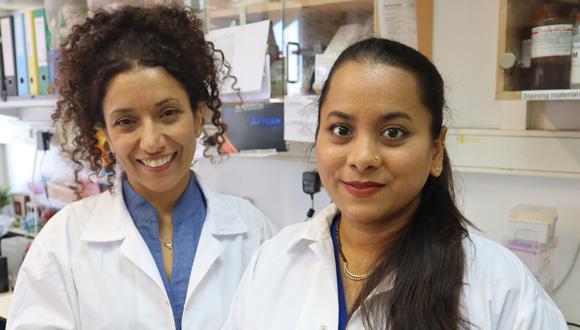
Want to Fall in Love? Step Outside in The Sun
Exposure to ultraviolet radiation from sunlight enhances romantic passion in humans
Any Tel Avivian will tell you that the perfect place for a first date is at the beach. Now, we have the science to support that claim. Researchers at Tel Aviv University have found that exposure to ultraviolet radiation from sunlight enhances romantic passion in humans. In the study, men and women were exposed to UVB (ultraviolet radiation type B) under controlled conditions, and the findings were unequivocal: increased levels of romantic passion in both genders.
Sun + Skin = Love
The study revealed that exposure to sunlight affects the regulation of the endocrine system responsible for the release of sexual hormones in humans. The discovery may lead to practical applications down the line, such as UVB treatments for sexual hormone disorders.
In animal models, the effect was dramatic: the females’ hormone levels rose significantly, enlarging their ovaries and prolonging their mating season; the attraction between males and females increased; and both were more willing to engage in sexual intercourse.
The researchers repeated the experiment on the animal model, this time removing from the skin a protein called p53, which identifies DNA damage and activates pigmentation during exposure to sunlight as protection against its adverse effects. The removal of the protein eliminated the effect of UVB exposure on the animals’ sexual behavior, convincing the researchers that exposure to radiation through the skin was the cause of the observed hormonal, physiological and behavioral changes, and that the protective system is also responsible for the regulation of sexuality.
Furless Humans and Sun Exposure
In the 32 human subjects of the study, all treated with UVB phototherapy at the Tel Aviv Sourasky (Ichilov) and Assuta Medical Centers, both genders exhibited a rise in romantic passion, and males also noted an increase in levels of aggression.
Similar results were found when the subjects were asked to avoid sunlight for two days, and then tan themselves for approximately 25 minutes. Blood tests revealed that exposure to sunlight resulted in a higher release of hormones like testosterone compared to one day before exposure. A rise in testosterone in males during the summer was also found in analyses of data from the Israeli health maintenance organizations Clalit and Maccabi Health Services.

Prof. Carmit Levy (on the left) & PhD student Roma Parikh.
The new discovery from TAU may lead to future practical applications, such as UVB treatments for sexual hormone disorders. The breakthrough opens up for further discoveries in basic science, “As humans, we have no fur, and our skin is thus directly exposed to sunlight. We are only beginning to understand what this exposure does to us, and the key roles it might play in various physiological and behavioral processes. It’s only the tip of the iceberg,” says Prof. Carmit Levy from the Department of Human Molecular Genetics and Biochemistry at the Sackler Faculty of Medicine.
The study was led by PhD student Roma Parikh and Ashchar Sorek from the laboratory of Prof. Levy. UVB phototherapy was administered to the subjects at the Tel Aviv Sourasky (Ichilov) and Assuta Medical Centers. The groundbreaking discovery was published as a cover story in the prestigious scientific journal Cell Reports.
